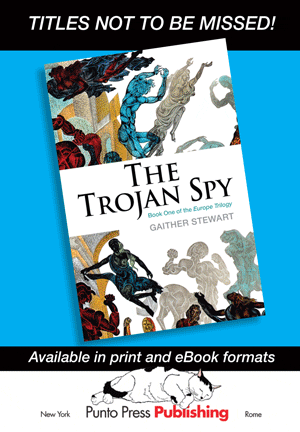Gaither Stewart, Senior Editor
(Rome) Though continental populist movements like the Northern League and Five Stars in Italy or Podemos in Spain have planted in the minds of many Europeans the idea of the vulnerability and fragility of both the European idea as expressed in the very term, European Union (EU or simply Europe), and its universal currency, the once powerful EURO, the irresponsible handling of the Greek crisis by Germany and its closest allies, The Netherlands and Finland, et al, have brought to the surface the EU’s wobbly legs and made audible for all to hear the creaking and squeaking arising from its very foundations. Who will be next to fall under German fire and ire emergent political leaders, economists and journalists are wondering. Portugal, Spain, France or Italy?
Germany’s admitted cruelty and intransigence toward Greece lead me to conclude that the real tragedy of Europe as a whole, as a viable social idea—if not ideology—is Germany itself. Germany, in whose vision the next crisis is just around the corner, which in turn will require another turn of the screw of austerity. Austerity and more austerity, at all costs.
Germany, severe and sensitive to criticism. Germany, always right. Germany, both amnesiac of and obsessed by its own past that most of Europe has not yet forgotten either. Germany, possessed by its unrelenting need for order, control … and austerity. Germany, ready to abandon the idea of a social Europe and accept a role of subservience to the USA. Germany, in the grips of an enduring unilateral vision of reality. Germany, culturally and ideologically isolated; perhaps expressed by its tortured past and by its language on the one hand, and obsessed by its nature of order and austerity on the other.
It must also be said that, by negotiating on its knees, like a supplicant, the Greek government has only succeeded in arousing the domineering instinct in the German establishment. ———eds.
[dropcap]T[/dropcap]he Greek crisis will not simply go away. It will remain like a landmark, a marker of the distance from the original European social idea, which Germany, and Germany practically alone, has now devastated in order to crush Greece and put it up for sale. Occupy it in the 1940s and buy it in 2015! Many Germans must be experiencing their Dr. Strangelove-like economic king, [Wolfgang] Schäuble’s assumed role of the mean Master Sergeant with both awe and fear and trembling, while other Europeans as a consequence are concluding that they do not want to cede their fiscal and economic sovereignty to a German-speaking, German-controlled EU in Brussels. Italians do not want to see the Coliseum used someday as a warranty for repayment of its great national debt,
It has been said that Schäuble and Merkel and their political allies could not behave otherwise, themselves victims of the false vision of reality the German establishment and its media have projected on the continent for decades: that is, that the German taxpayer has been financing Greece for years. A completely untrue claim. Despite corruption and tax evasion Italians taxpayers pay as much … or more. The German public does not know the truth. The political parties and the media have maintained silence on the reality of the German role in Europe. For example, in Europe in general, but allegedly also in Germany, the public is not even aware of the widely hated and feared International Monetary Fund’s unexpected appeal to reduce the Greek debt.
Germany today seems torn between the idea of being the leader of an expanded Europe or opting for the tempting vision of a major role in alliance with Russia and the Heartland reaching to and including China. As leader of tiny Europe— historically called “the continent of Europe”, but in reality just a peninsula attached to the Eurasian Heartland—Germany is the big fish in a little pond, a role it has long played, too long in its estimation. For beckoning in the distance is Russia, the object of eternal attraction of ambitious, imperial-minded Germany.
The question in any case remains still unanswered today, 70 years after its defeat in World War II: Is Germany—like Japan— a sovereign nation or a pledged vassal of the USA?
Gaither Stewart’s latest book is Time of Exile, the third and concluding volume of his renowned Europe Trilogy. (Punto Press).
[printfriendly]
Remember: All captions and pullquotes are furnished by the editors, NOT the author(s).






At issue is not so much the German character because it does not really exist just as little as there is an American character, a Russian character or a Chinese character. What forms a country’s foreign and inland policies is rather the extent and quality of its people’s level of education, predominant economic systems and even its geography. To take the last first, German has always been and still is the heart of Europe and Germans are fully aware of it. All European conflicts always revolved around that fact and little could be accomplished without the involvement of this or… Read more »